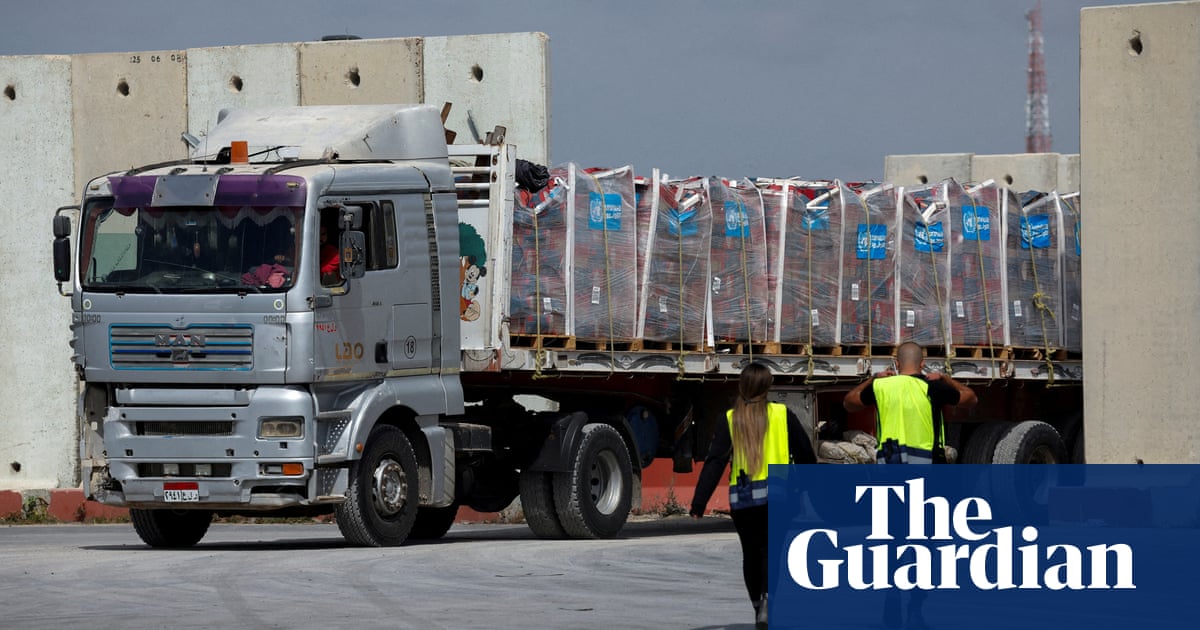
Faced with increasing devastation in Gaza, there are growing questions in the international community about what will follow the current fighting. Some officials and commentators have suggested that the Palestinian Authority resume governance in the Gaza Strip, but that idea is neither just nor feasible.
On Oct. 31, US Secretary of State Antony Blinken said that, after Israel’s military operations are completed, it would “make the most sense … for an effective and revitalized Palestinian Authority to have governance and ultimately security responsibility for Gaza.” He added that “temporary arrangements” involving international agencies might be necessary first.
However, there are multiple reasons why the PA is likely to refuse to take on responsibility for Gaza and why those who support the PA should not set it up to fail.
Conditions in the Gaza Strip, which were desperate even before Oct. 7, will be catastrophic. More than 11,000 Palestinians in Gaza have died in the last month and that toll will increase. Others face injuries that will have lifelong consequences. So far, nearly half of the buildings in Gaza have been destroyed, according to the UN. Much of the area’s critical infrastructure and road networks are damaged or destroyed. More than 1.5 million people are internally displaced and many will have no homes to return to. Schools and hospitals have been damaged. Water and sanitation systems are no longer functional. Given the intense crowding and lack of clean water and safe food, disease poses a major threat.
Anyone who takes on responsibility for daily governance in the Gaza Strip will face an intense crisis. Meeting basic needs for water, food, shelter and medical care will require massive amounts of effort and foreign aid. Rebuilding will demand even more external funds, as well as the ability to import significant amounts of materials, including cement and fuel. Given the experience of Israel’s blockade since 2007, it is unlikely that Israel will allow such imports in the necessary quantities. Furthermore, it is very likely that Israel will further shrink the already extremely crowded space where Palestinians in Gaza are allowed to live, creating more “no-go” zones and perhaps refusing to allow residents to return to northern Gaza.
Anyone who takes on responsibility for daily governance in the Gaza Strip will face an intense crisis.
Kerry Boyd Anderson
Under such circumstances, whoever takes over responsibility for life in Gaza will face a nearly impossible task. They would be completely reliant on foreign aid for years, which is hardly a guaranteed source of ongoing support. Why would the PA accept such a role? Why would its supporters set it up to fail?
Furthermore, the PA already faces a major credibility problem. Even before Oct. 7, it had become deeply unpopular. In September, a poll from the Palestinian Center for Policy and Survey Research found that 62 percent of Palestinians in the Occupied Territories “think the PA is now a burden on the Palestinian people,” while 78 percent wanted President Mahmoud Abbas to resign.
This year marks the 30th anniversary of the Oslo Accords, which created the PA, and a majority of Palestinians believe that the accords have failed. The PA lacks any true authority in the West Bank and has been unable to protect Palestinians from expanding Israeli settlements, violence from Israeli settlers or military forces and the destruction of Palestinian homes and fields. More broadly, the PA has failed to win a Palestinian state through negotiations and has not held parliamentary or presidential elections in years.
How can an authority viewed as ineffective and corrupt by most Palestinians govern a postwar hellscape in Gaza? PA leaders are aware that taking responsibility for Gaza in the aftermath of the war would destroy any credibility it has left among Palestinians. The PA is “not going to go to Gaza on an Israeli military tank,” Palestinian Prime Minister Mohammed Shtayyeh recently said, adding that the PA would only return to Gaza “as part of a solution that deals with the question of Palestine, that deals with occupation” in both Gaza and the West Bank.
How can an authority viewed as ineffective and corrupt by most Palestinians govern a postwar hellscape?
Kerry Boyd Anderson
Additionally, the PA would likely meet violent resistance in Gaza. Even if Israel destroys Hamas, it cannot wipe out anger and despair. Whether through Hamas remnants or less organized groups, any new authority in Gaza will face violence. Furthermore, Israeli leaders have said that they intend to maintain “overall security responsibility” in Gaza, so a PA government there would have to contend with regular Israeli strikes and incursions.
As PA leaders have stated, the only way that the authority might successfully govern Gaza would be in the context of a major peace deal that would provide the PA with true authority — and eventually sovereignty — over the West Bank and Gaza. However, 30 years after the Oslo Accords, a two-state solution is further out of reach than ever before.
The international community should not dump responsibility for a devastated Gaza on the PA. It is true that there are no good options for governance in the Strip, but trying to force it on the PA would break the group. There is no feasible option for the PA — “revitalized” or not — to govern Gaza without a much broader peace deal, which has been elusive for decades.
Rather than seeking some way to fob off responsibility for Gaza onto the PA, international leaders need to accept the reality that the status quo among Israel and the Palestinians has failed and it is time for a fundamentally new approach. Part of that approach should include the opportunity for the Palestinian people to choose their own government.
• Kerry Boyd Anderson is a professional analyst of international security issues and Middle East political and business risk.
X: @KBAresearch
Disclaimer: Views expressed by writers in this section are their own and do not necessarily reflect Arab News" point of view












